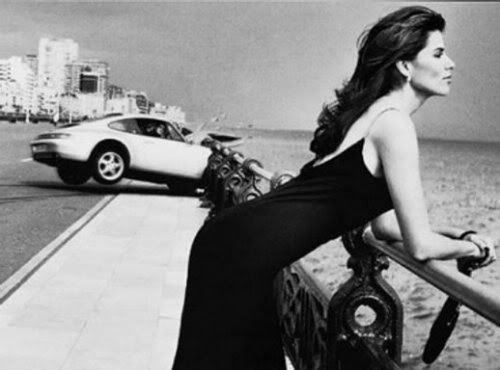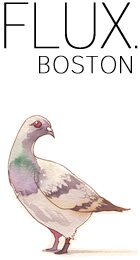Only within the past two years have I come to realize what a bizarre and unfortunate relationship I had developed with the written word.
Skipping the See Spot Run years, things really started to derail in high school when I spent a majority of my time fretting over the memorization of “To the Virgins, to Make Much of Time” or recalling what color Catherine’s dress was in Chapter 4 of Wuthering Heights. If I wasn’t able to regurgitate these facts on command in the form of a quiz, or exam I would “fail”.
These pressure-cooker scenarios condition one to a.) commit literary information to short-term memory b.) truly miss out the underlying meaning, symbolism, nuances and enjoyment that can be derived from reading.
College was much of the same in a business school where electives were less about “exploring” and more about “What easy course can I take with my friends to boost my GPA after a floundering semester of macro-economics and requires a marginal degree of mental output?” Speech and Hearing? Perfect. The most energy I ever exerted in that course was when I read Fred Savage’s closing monologue of the Wonder Years aloud to a classroom of hungover Delta Tau Chis and two-years-past-excusable “Freshman 15” engorged lasses clacking away on their T-Mobile Sidekicks™.
“Once upon a time, there was a girl I knew who lived across the street. Brown hair, brown eyes. When she smiled, I smiled. When she cried, I cried. Every single thing that ever happened to me that mattered, in some way, had to do with her….”
Oh, what those dozing lotharios and bloated chicks missed! A+
Upon graduating, I wasted another 10 months of my life studying for the CFA and an ACI dealing certificate…traumatic.
Only recently have I been able to deflate my hackles and cease hissing at the notion of “reading for fun”. In fact, this activity has now become a prominent part of my post 9-5 life and is further fueled by the proximity of my local library branch. Attached to my apartment complex, no excuses.
I have been making up for lost time and am thrilled when I discover someone/something I really enjoy—happy to be able to slough of the scar tissue of my early education years. It’s become a sort of speed dating for me. Sylvia Plath? Pleasure to meet you! My what a lovely broche. This is the start of something wonderful. Anne Sexton? Ooo..I’m sorry, I’ve got another meeting to run to…-hastily chucks into book deposit slot- By page 37 of her drippy, self-righteous A Self-Portrait in Letters I had converted her book into a beer coaster and proceeded to watch The Jersey Shore. Nice cartwheel Snooks.
Just felt like sharing this bit this morning as I have been reading up on David Foster Wallace who seemed like an interesting and troubled fellow. David currently resides in my book queue.
My sophomore year English teacher(and later mentor) once said he likes having three books in rotation at all times. One up at bat, one on deck, and one in the pit.
I am sure he didn’t realize at the time how pivotal that phrase would later become in shaping my views on dating.
And with that…I leave you with a dense and seemingly cumbersome block of text I can’t figure out how to put under a HTML cut some quotes by David Foster Wallace I found most inspiring this a.m. Enjoi. ♥
- “The really important kind of freedom involves attention, and awareness, and discipline, and effort, and being able truly to care about other people and to sacrifice for them, over and over, in myriad petty little unsexy ways, every day.”
- “Both destiny’s kisses and its dope-slaps illustrate an individual person’s basic personal powerlessness over the really meaningful events in his life: i.e. almost nothing important that ever happens to you happens because you engineer it. Destiny has no beeper; destiny always leans trenchcoated out of an alley with some sort of Psst that you usually can’t even hear because you’re in such a rush to or from something important you’ve tried to engineer.”
- “What the really great artists do is they’re entirely themselves. They’re entirely themselves, they’ve got their own vision, they have their own way of fracturing reality, and if it’s authentic and true, you will feel it in your nerve endings.”
- “Fiction is one of the few experiences where loneliness can be both confronted and relieved. Drugs, movies where stuff blows up, loud parties — all these chase away loneliness by making me forget my name’s Dave and I live in a one-by-one box of bone no other party can penetrate or know. Fiction, poetry, music, really deep serious sex, and, in various ways, religion — these are the places (for me) where loneliness is countenanced, stared down, transfigured, treated.”
- “Acceptance is usually more a matter of fatigue than anything else.”
- “I’d tell you all you want and more, if the sounds I made could be what you hear”
- “This is another paradox, that many of the most important impressions and thoughts in a person’s life are ones that flash through your head so fast that fast isn’t even the right word, they seem totally different from or outside of the regular sequential clock time we all live by, and they have so little relation to the sort of linear, one-word-after-another word English we all communicate with each other with that it could easily take a whole lifetime just to spell out the contents of one split-second’s flash of thoughts and connections, etc. — and yet we all seem to go around trying to use English (or whatever language our native country happens to use, it goes without saying) to try to convey to other people what we’re thinking and to find out what they’re thinking, when in fact deep down everybody knows it’s a charade and they’re just going through the motions. What goes on inside is just too fast and huge and all interconnected for words to do more than barely sketch the outlines of at most one tiny part of it at any given instant.”
- “But the truth is it’s hard for me to know what I really think about any of the stuff I’ve written. It’s always tempting to sit back and make finger-steeples and invent impressive sounding theoretical justifications for what one does, but in my case most of it’d be horseshit. As time passes I get less and less nuts about anything I’ve published, and it gets harder to know for sure when its antagonistic elements are in there because they serve a useful purpose and when their just covert manifestations of this “look-at-me-please-love-me-I-hate you” syndrome I still sometimes catch myself falling into.”
- “The capital-T Truth is about life BEFORE death.
It is about the real value of a real education, which has almost nothing to do with knowledge, and everything to do with simple awareness; awareness of what is so real and essential, so hidden in plain sight all around us, all the time, that we have to keep reminding ourselves over and over:
‘This is water.’‘This is water.’
It is unimaginably hard to do this, to stay conscious and alive in the adult world day in and day out.”







